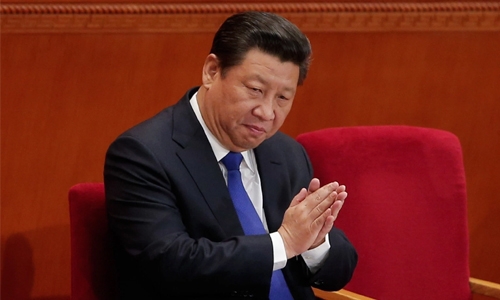Clock ticks for China in trade talks with US
Chinese President Xi Jinping’s trade war strategy is getting more complicated, with slowing growth and disagreements about his approach within the Communist Party adding new battlefronts, according to analysts. With the clock ticking since December 1 on a 90-day deadline to reach a deal with the United States, China has only made superficial peace offerings as it tries to buy time to shore up its economy, analysts said.
The lack of a clear direction suggests dissent from within the party leadership “since the summer”, Jean-Pierre Cabestan, a political science professor at Hong Kong Baptist University, said. There are “fierce divisions” in the leadership on “how to handle the trade war with the US and how to relaunch reforms, and whether to relaunch reforms or not,” he said. “I don’t think they’ve settled the disputes.” Xi vowed Tuesday to press ahead with reforms as the party celebrated the 40th anniversary of its landmark “reform and opening up” policy.
But Xi, who has accumulated titles to become China’s most powerful leader since Mao Zedong, warned that no one would “dictate” China’s development path and that it would “resolutely not reform what shouldn’t and can’t be changed”. Steve Tsang, head of the China Institute at the School of Oriental and African Studies in London, said the lack of a regular autumn plenum of the party’s Central Committee -- a platform to discuss reforms -- signalled Xi was “avoiding such issues” and “suggest Xi is feeling pressure over the trade war and the slowing economy.”
“As Xi takes charge of practically all major policy areas, discomfort in the upper echelons of the party over the trade war and the economy cannot but imply discomfort with the direction he was leading China.”
Government not trustworthy?
Data last week showed that consumer spending grew at its slowest pace in 15 years in November while factories eased up. Growth is expected by the government to ease to around 6.5 per cent this year, down from 6.9pc in 2017. Over the weekend, a prominent economist told a university forum that the lack of clear trade strategies have led to an uncertainty among investors.
“What is the fundamental problem? Fear of policy uncertainty, fear that the government is not trustworthy,” said Xiang Songzuo, an economics professor at the elite Renmin University. Censors have since taken the speech off Chinese social media and references to it can no longer be found on the Twitter-like Weibo.
Measures to stabilise growth are expected to top the agenda this month at the party’s annual Central Economic Work Conference, which sets the policy direction for next year, the state-run Global Times reported. Tsang said plans to reduce risks in the financial system and tackle pollution and poverty -- priorities set for 2018 -- have been shelved, at least in part, to support economic stability and growth, due to the roiling trade spat.
Related Posts

